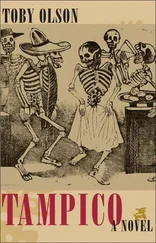With regard to the cases his critics adduce, Walzer argues that intervention would have been warranted in apartheid South Africa, but because apartheid was not “ordinary oppression,” but rather a case of “near-slavery” that also constituted a national-liberation struggle (Walzer 1980a: 226). As a result, failure to intervene did not mean allowing a political process to work out the local meaning of freedom but denying the process itself. By contrast, Walzer denies that intervention in Nicaragua in defense of individual rights would have been legitimate. It would have violated “the rights of Nicaraguans as a group to shape their own political institutions and the rights of individual Nicaraguans to live under institutions so shaped” (227), and would pose a “radical challenge to communal integrity” (229), leading to remaking the whole world on liberal-democratic lines (229–32). The problem with such a remaking is its singularity, rejecting the history of social and political institutions in favor of granting wide latitude to international bureaucrats. Such a denial would lead to the destruction of common lives and make political participation on a local scale impossible. Yet, on Walzer’s account, participation in the community is one of the foremost individual rights because of its role in identity formation (234, Walzer 1983: 31–63).
Walzer’s justification of the claim that humanitarian intervention is legitimate only in exceptional cases is important in illuminating his contribution to theorizing about war and to political theory more broadly. He grounds state rights on a domestic analogy with individual rights because the rights in question are on his view individual rights, collectively held. That is, the state does not, in Walzer’s theory, have any intrinsic moral importance, but it is important to its citizens (Walzer 1988b, Reiner 2017b), who tend to wish to see it reformed as a result of domestic political action, not replaced by cosmopolitan representatives of the world community. Moreover, Walzer relies on the war convention because it defends a pluralist international order in which different communities of women and men struggle in different ways to achieve and advance different conceptions of what makes life valuable. This is, in Walzer’s just-war theory, what we should aim for unless the community attempts to interfere with the bare rights to life and liberty that all human beings need to continue living and that therefore underlie all legitimate states. While basic rights to life and liberty are universal, Walzer therefore does not require or expect each community to be a liberal democracy. Indeed, he would later argue that “democratic idealism” – commitment to each people governing itself by its own standards – means rejecting the universal claims of liberal democracy (Walzer 1994a: 58). Because freedom is a collective product that must be continually rethought and reworked, Walzer attaches great importance to collective self-determination, insisting that inter-communal aggression is the major and almost only legitimate casus belli and that humanitarian intervention is almost never justified.
As Walzer bases his just-war theory on the claim that war has a moral reality and his theory of jus ad bellum on the war convention that he takes to be the product of that reality, Wars is replete with historical examples. It was important to Walzer that the examples be historical, both because his interest in justice in war emerged out of World War II and Vietnam and because he disliked the appeal to hypothetical examples deployed by members of the Society for Ethical and Legal Philosophy (Walzer 2015a: xxviii, 2007: 308; see discussion in Introduction). For Walzer, just-war theory must be both historical and political. For many recent just-war theorists, the techniques of analytic philosophy are a better foundation, because they lead to sharper analysis, while hypothetical examples allow us to abstract away from the confusion of the real world. Just as early critics of Wars suggested that Walzer’s theory of jus ad bellum went wrong because of its basis in the war convention, so more recent critics of his theory of jus in bello have made similar claims about his insistence that combatants have equal war rights. It is to this subject that we turn in Chapter 2.
1 Interview with author, April 19, 2010. 2 In particular, he has become more willing to countenance military humanitarian intervention than he was in 1977 (Walzer 2018: 53–76). 3 Orend argues that Walzer ought to have a theory of the justice of post-war settlements and reconstruction (jus post bellum) and reconstructs one along the lines he thinks Walzer ought to have taken (Orend 2000: 135–52, Orend 2013: 185–248; see also Patterson 2012a, 2012b). I postpone consideration of this issue until Chapter 6 so as to link it to Walzer’s skepticism about the cosmopolitan approach that underlies the project of developing principles of jus post bellum. 4 Most importantly, 2004b, but see also Walzer 1980a, 1988b, 1988c, 1992a, 2002b, 2006a, 2006b, and the forewords to all the subsequent editions of Wars. 5 The sixth proposition suggests an implicit theory of jus post bellum, which Orend calls the “retributive model” and criticizes (Orend 2013: 201–6), advocating instead “rehabilitation” designed to make aggressor states into law-abiding, rights-respecting members of international society (215–40). 6 According to Walzer, it was the Six-Day War that converted Dissentniks such as Irving Howe to Zionism. Interview with author, November 21, 2017.
Конец ознакомительного фрагмента.
Текст предоставлен ООО «ЛитРес».
Прочитайте эту книгу целиком, на ЛитРес.
Безопасно оплатить книгу можно банковской картой Visa, MasterCard, Maestro, со счета мобильного телефона, с платежного терминала, в салоне МТС или Связной, через PayPal, WebMoney, Яндекс.Деньги, QIWI Кошелек, бонусными картами или другим удобным Вам способом.












